Photographs: Amit Dave/Reuters
'The algorithms you will use to unlock the mysteries of the universe are going to be very different from the ones my generation sought to master,' Nirupama Rao, India's Ambassador to the United States of America, tells students at Pondicherry University, May 19.
It is indeed a great honour to have been requested to address the Pondicherry University on the occasion of their twenty second convocation.
I say it is an honour because of the character of your institution. I am impressed by your vision in setting the target, how you blaze new trails by setting trends, and your determination to achieve the goals thus set. You are proud but not complacent, you wish to achieve global standards in the work you do.
You encapsulate demographic diversity and equity and you are networked with the world, learning and absorbing ideas, truly fulfilling the meaning and the purpose of education.
So, it is a pleasure to be here today in the company of such a distinguished group of people, the Vice-Chancellor and the Faculty, and all of you graduating students. I would like to especially recognise and express deep appreciation for the role and contribution of Vice-Chancellor Tareen who has provided exemplary and visionary leadership to the university for some years now.
I thought I should speak to you today about what education should do for the country, the need for us to introspect on how freedom and responsibility are inextricably linked, how education should build our democratic dividend, and India's place in the world.
Education as a word, springs from the Latin root 'educere', which means 'to lead forth', 'to erect'. You students are being led forth into the world of the 21st century, a world very different from the world of my generation of the early 1970s.
The world has only grown in complexity over the last few decades, the algorithms you will use to solve the problems or unlock the mysteries of the universe that surrounds us, are going to be very different from the ones my generation sought to master.
There is much that is expected of you by your country, and there are also great successes that await you, if you are able to invest your training, your skills, and your powers of judgement astutely and wisely.
Please ...
'Let us be known as the intelligent and profoundly thoughtful Indian'
Photographs: Uttam Ghosh/Rediff.com
What is the best asset that can propel you on your life's journey apart from eternal hope that should be your ship's sail?
It is the power of reason and independent critical thinking. Reason, as Thomas Jefferson said, is 'the only oracle given (to) you by heaven.'Discard what is irrelevant, as Cardinal Newman said, see things as they are.
Many years ago, the wise and learned Sri Aurobindo, speaking on the soil of Pondicherry, referred to national education as 'something more profound, great and searching ...an education proper to an Indian soul and need and temperament and culture that we are in quest of... something faithful (not) merely to the past, but to the developing soul of India, to her future need, to the greatness of her coming self-creation, to her eternal spirit.'
The question, as Sri Aurobindo framed it, is not between modernism and antiquity, but between the present and the future, not a return to the glories of the fifth century but 'an initiation of centuries to come' that is demanded 'by the soul, by the Shakti of India.' And this is where we see the expounding of a universalist vision: That education must help the student to enter into that perfect relationship with the mind and soul of the larger humanity of which we are a part, of which our nation, our India, is 'a separate yet inseparable member.'
Aurobindo's words, penned almost a century ago have a profound relevance even today and I have therefore drawn reference to them. His eloquence was unmatched when he issued a call for education to usher in 'the alchemy of infinity into the finite life', as is reflected in our tradition through the examples of the brave and forthright like Nachiketa, Markandeya, Savitri and Arjuna.
Correspondingly, you must learn to set the highest standards for yourself as also for those around you.
The power of intelligent questioning, probing debate, and a passion for truth and abjuring narrow mindedness is what should be your guide.
It is not argument for the sake of argument, for let us be known as the intelligent and profoundly thoughtful Indian rather than the merely argumentative Indian.
Our age has been variously called the Age of Discovery by virtue of the vast ocean of knowledge that is being accessed through the miracle of advanced technology and connectivity, as also the Age of Participation because each and every one of you've the power to influence the course of history through the power of participation in the life of this vast, pulsating nation of ours.
You can make a difference for good or bad, there is so much power you possess. I hope you will only do good.
You are the inheritors of a proud tradition of freedom and democracy established by our founding fathers. Our freedom was achieved through great sacrifice.
Please ...
Do not go gently into the night
Image: 'You must learn to ask searching questions about the realities that surround us today'Photographs: Uttam Ghosh/Rediff.com
You must all recall the words of the poet Rabindranath Tagore in his immortal poem 'My Country Awake':
Where the mind is without fear and the head held high;
Where knowledge is free;
Where the world has not been broken up into fragments by narrow domestic walls;
Where words come out from the depth of truth;
Where tireless striving stretches its arms towards perfection;
Where the clear stream of reason has not lost its way into the dreary desert sand of dead habit;
Where the mind is led forward by Thee into ever-widening thought and action;
Into that heaven of freedom, my Father, let my country awake.
In the poet Tagore's words, freedom is identified with freedom from fear, the freedom of knowledge, freedom from narrow mindedness, the quest for endless perfection, the avoidance of dead habit, and an emphasis on truth.
We must ask ourselves how much, today, we, as Indians, live by these lofty ideals.
Have we become too comfortable in our freedom?
Have we strayed from the path of reason and from truth?
Have we, particularly our middle classes, begun to regard freedom as a license to do whatever we choose with no thought of how this might impact on the rest of our society or on the future of this land that is our creator?
Have we diluted the high and lofty ideals of those who led us to independence?
You, as young inheritors of the legacy of our freedom, must learn to ask searching questions about the realities that surround us today.
Do not go gently into the night.
Please ...
'India is a power to reckon with'
Image: Indian researchers at a biotechnology labPhotographs: Ho New/Reuters
The kind of change we have witnessed in India over the last two decades has been phenomenal and unprecedented.
India has integrated its economy with the rest of the world, our young scientists and engineers have crossed the seven seas and brought fame and glory to the motherland through their mastery of new and frontier technologies.
Where I am today, in the USA, there is a constant emphasis on this trend. India, is seen, together with China, as representative of the new and resurgent Asia. Quite rightly so.
India is a power to reckon with, both in our region, and in the world.
The quality of education imparted in some of our leading scientific and engineering colleges and universities is indeed, unquestionably world class. We can be proud of them. Their graduates shine wherever they go.
But today, there is much more that we need to do.
The enlightenment provided by education must be made available and accessible to all our young people, millions of whom cannot access the elite institutions in our major cities.
More importantly, with the revolution in rising expectations that we see across our Republic, we must see education not only as an enabler for knowledge but as a project in self realisation, creating responsible and committed citizens.
I honestly believe that today there is insufficient introspection in this country about the challenges that face us.
We are an ancient country but a new democracy. When any organism is new or nascent, we must tend it with the utmost care and devotion. That is the law of nature.
Somehow, in the upsurge of voices that crowd our arenas and amphitheatres, we have dulled our awareness of what it means to safeguard and sustain the meaning of our freedom.
While there is growing assertiveness about what our rights should be, there is not much focus on what it means to be a responsible citizen, dedicated above all, not to the narrow needs of one caste, sub caste or community, state, religious or linguistic group, but to the national good, stability, progress and well being for all.
Please ...
'Say no to ethnic prejudices, harassment of young girls'
Image: A scene from ImphalPhotographs: Jayanta Shaw/Reuters
I know it has become fashionable among many to criticise and question everything that government does.
While the recent upsurge of people's voices against corruption cannot be ignored, I believe there is scope for a more rational debate on such issues.
Let me be clear on this. Corruption cannot be condoned under any circumstances whatsoever and must be fought with the utmost determination. In fighting it, we must use all the Constitutional and lawful methods available to us.
We have a Constitution and a parliamentary system that are strong, resilient, responsive and durable. We have laws that are well defined, and we have recourse, as citizens, to be assured of justice under these laws.
In our eagerness to seek change we must never overturn the very edifice of our democracy.
Let us exercise our freedom with a sense of responsibility.
Let us be more understanding and sensitive of the needs of those lesser privileged.
Let us also say an emphatic 'no' to racial or ethnic prejudice.
Let us say 'no' to the harassment of young girls, like those from our Northeast, and women in general.
Let us treasure our girl children and never prevent them from being born.
In the United States today, I am witness to a debate about the role of the humanities in university education. The question asked is why do humanities matter in a democracy?
As less and less attention or importance is given to humanities is there a long term cost to democracy? A good humanities education inculcates critical thinking in the student, it provides knowledge of world history and religions and helps us to be less obtuse about other cultures and other people. Literature, for instance, trains, as it is said, 'the muscles of the mind.'
In Brazil today, I understand that philosophy is a subject that is taught in secondary schools to all students so as to make them more aware of the importance of the examined life, as the ancient Greeks put it.
Please ...
'India will move at a pace that is dictated by its own needs'
Image: Students at a townhall meeting with US President Barack Obama at St. Xavier's College, Mumbai, November 7, 2010Photographs: Jim Young/Reuters
Today, in India, we talk of our demographic dividend which is made up of the significant majority of our population that is under the age of twenty five.
This demographic dividend must equally be a democratic dividend and we must build in these youth the skills that will make them responsible and committed citizens of our democracy.
Education of these young men and women should not just be about profits to be made in business and industry but also about preparing them to shoulder the responsibilities of democracy.
This cannot be done through a mere blast of sound bytes fed through so-called breaking news on television. It has to come through the love of reading, and through the cultivation of the imagination in order to inculcate a spirit of tolerance and accommodation, and awareness of the world outside the narrow prism of caste or community.
Many of you must be aware of the following words: Duty, honour, country. I recall the speech made fifty years ago this year by the American general, Douglas MacArthur, to cadets at the West Point military academy. That speech has been quoted time and time again, but I shall make a reference to it here.
It spoke of learning to master yourself before you seek to master others, to have a heart that is clean, a goal that is high, to learn to laugh, yet never forget how to weep, to reach into the future, to be serious, yet never take yourself too seriously, to be modest and understand the simplicity of true greatness, the open mind of true wisdom, the meekness of true strength.
When the final roll call is taken, these are the values we should be judged by.
Those words spoken to an audience of young military cadets are equally applicable to you, for these same values will make you worthy of being seen as the best of your generation if you internalise them, and make them your code of conduct.
Let me now turn to India and its role in the world. This is not grandiloquence, for there is a logic and a rationale that compels the recognition of India's role in the world.
As has been said, it is the power of India's example that is our strength and our sustenance.
The example of a country that encompasses such amazing diversities (I deliberately use the word in the plural for you cannot singularise India) is what is inspiring in an age of competing nationalisms and narrow creeds.
It is a natural corollary of this that the world must understand why it is so important for India to succeed in its epic and continuing enterprise of building a strong and developed nation.
We are a nation of over one billion people, encompassing every type of the timber of humanity. Prescriptions that have applied in textbook situations cannot apply to us. We are not a textbook country.
India will move at a pace that is dictated by its own needs. By our priorities of inclusive growth, removing inequalities both personal and regional, alleviating poverty, empowering the marginalised and underserved, ensuring internal stability, accelerating economic growth, educating our youth, protecting our minorities, and defending our borders, our cities and our countryside from the threat of terrorism and those who violate our territorial integrity and sovereignty.
That is why I say that prescriptive approaches cannot be applied to India and what we should do within and without.
There must be understanding of our national enterprise and our calling. Of the challenges we face, and our determination to overcome them.
Please ...
'Do what you do for the glory of India, not for becoming famous yourself'
There is also another example that India sets. It is one of a country that plays by the rules and covenants of international behaviour with conviction and with responsibility, while defending the national interest.
We do not proliferate dangerous weapon technologies, our laws and our institutions are well-functioning and democratic, we do not stifle free expression, we follow the paths of peace and negotiation, of deterrence rather than military confrontation and conflict.
Our independence of thought and the actions that follow from it, are what we hold sacred.
We can never be orbiters even as we do not seek orbiters. We seek the traffic of ideas, the flow of knowledge, investment and capital, the unrestricted two way passage of professionals beyond borders, we seek stability in our neighbourhood, we want our neighbours to grow and prosper even as we do.
Our region faces many challenges. The difficult situation concerning Afghanistan is one of them as well as the miasma of terrorism and extremism that is engulfing Pakistan and has targeted and endangered and continues to target and endanger our own citizens.
Our primary focus has to be on our region and how we marginalise and overcome those forces that do not want our region to grow and prosper, that do not want the education of our girl children or the empowerment of our women, that do not want our societies to shake off the shackles of backwardness and prejudice, that seek the prolonging rather than the solution of issues that divide us.
The subcontinent to which we have given our name, and the Indian Ocean that stretches beyond our shores and has linked our destinies with Africa, the Arab world and South-east Asia, define in many ways our future well being.
The focus that we give to improving trade, connectivity, economic integration, confidence building and development cooperation within our neighbourhood is perfectly legitimate and justified. It is dictated by the national interest.
With the United States, with Europe, Russia and Japan, we have vital relationships, built on priorities determined by the same national interest of India.
Each of these relationships are crucially important for us as we seek the realisation of our vision of a 21st century India that is economically strong, resilient and enduringly democratic.
With China, our largest neighbour, it is important that we continue to transact a well-calibrated relationship, conscious of the enormously complex nature of our ties and therefore, always guided by mature judgement and long range vision.
This is not a sign of weakness as some make it out to be; it is an approach dictated by sober assessments. Emotional complexes cannot be a driving force in foreign policy.
As I see the future that beckons to you, it seems you have your tasks cut out.
I advise you not to seek personal triumph.
True leadership is about durable achievement that you can be proud of at the end of your lives.
One day let your grandchildren speak with pride about what you did -- that you increased food security, you solved maternal and child health and nutrition problems, that you were a beloved educator and public servant, engineer, scientist and innovator, that you promoted peace, consensus and trust building with our neighbours, that you were incorruptible.
You do not want to be remembered otherwise. Develop the capacity to keep your eye over the horizon, and not be entrapped in the petty immediacy of narrowly defined interests.
Do what you do for the glory of India, not for becoming famous yourself.
Mother India has given much to you, it is now your time to give to her.
Devote yourself to public service, and live in a way that will do India proud.
I wish you joy in the service of India.
Ambassador Nirupama Roy delivered this inspiring convocation address at Pondicherry University, May 19.

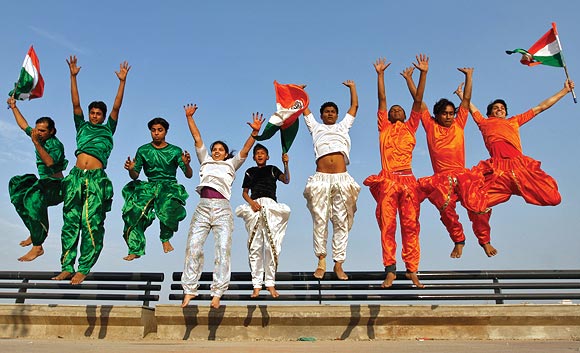
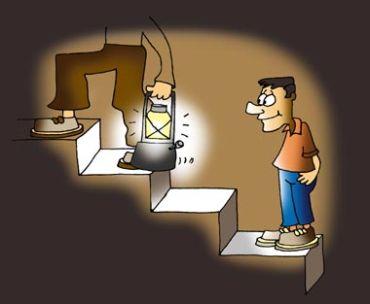

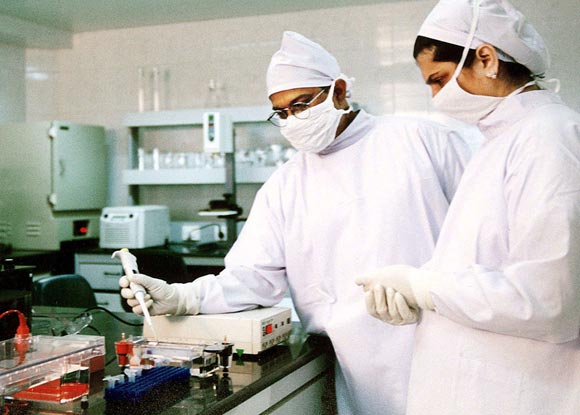
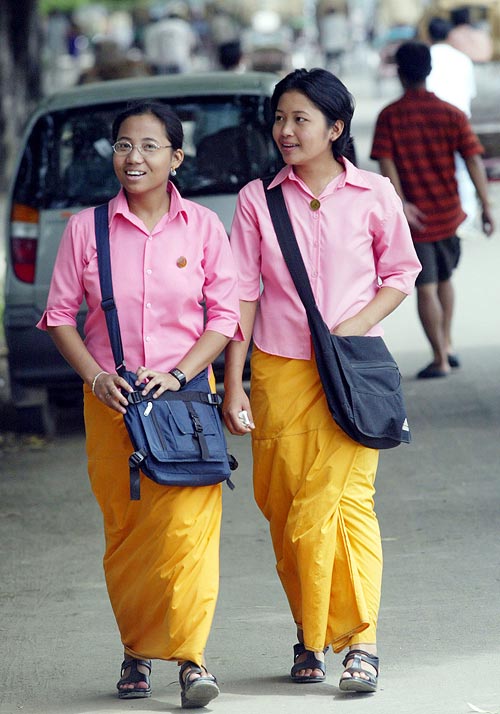
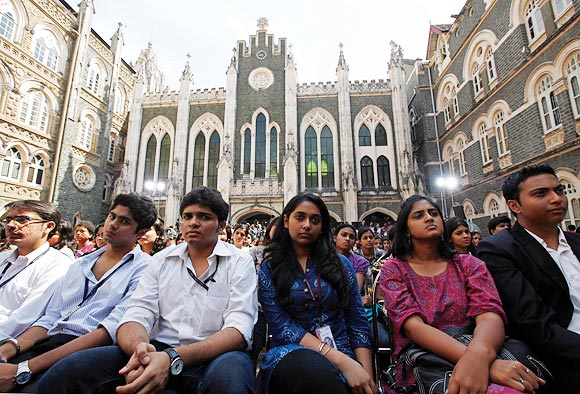
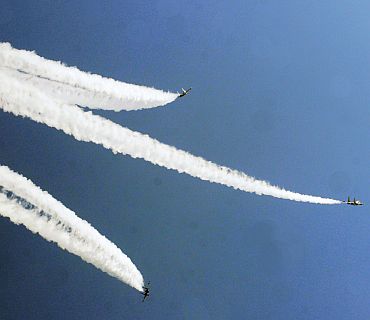
Comment
article